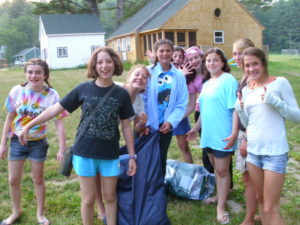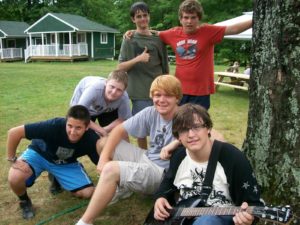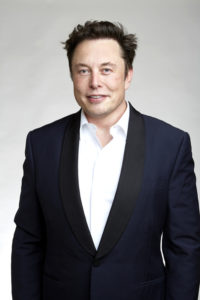As the parent of a child with Asperger’s, we know that you want to find the right camp that will help your child develop social skills, confidence, and independence. With so many choices available, it can be overwhelming to choose the right camp for your child. Here are some things to consider when choosing an Asperger’s Teen Camp for 2023.

Akeela offers a unique experience for kids and teens with Asperger’s, and similar neurodiverse profiles, with a focus on social skills development
Camp Akeela is truly something special, offering a unique summer experience for campers with Asperger’s. With a focus on social skills development, Camp Akeela provides an environment that promotes independence, self-confidence, and growth. Through activities specifically tailored to neurodivergent children, as well as scaffolded support from specialists in fields like Social Work, Psychology or Special Education, Camp Akeela allows these remarkable children to take part in experiences unlike any other summer camp – growing and learning together as part of an accepting community.
Camp Akeela also offers a variety of activities, from traditional camp activities like swimming and hiking to more specialized programs like drama, music, cooking, and art. With a wide range of activities for all interests and ability levels, your child will be able to make the most out of their summer at Camp Akeela.
Camp Akeela provides a supportive and inclusive environment for all children
Camp Akeela is an Asperger’s sleepaway camp that creates a unique and supportive environment for children with neurodiversity. Through empowering activities and interactive social skills workshops, campers begin to build community as they create meaningful friendships through trust, mutual respect, and love. Every activity is designed to foster a sense of unity as everyone strives to reach confidence and independence in an inclusive atmosphere. Camp Akeela not only encourages campers to make friends and be productive within their own social circles – they also provide lasting impressions as these children leave the camp each summer brimming with a newfound sense of self-belief and appreciation for those around them.
Akeela helps children to develop confidence and independence through various activities
At Camp Akeela, Asperger’s children can experience the benefits of developing confidence and gaining independence through engaging in age-appropriate activities that are combined with being part of a team. These activities include sports, crafts, and nature-based projects as well as educational discussions intended to help children improve their social skills as well as learn problem-solving strategies. The dedicated staff and volunteers at this camp strive to create a safe and supportive environment where children have the opportunity to develop positive self-esteem as they embrace the challenges of achieving their goals in this encouraging summer camp setting.
The camp staff are experienced and qualified to work with neurodiverse children
At Camp Akeela, camp counselors are experienced and qualified to provide the highest quality of care for children with neurodiversity. They understand the unique needs of campers and recognize that fostering independence is a key factor in campers’ social and cognitive development. Through activities like sports or recreational events, campers learn to work together as a team while developing problem-solving skills and self-empowerment. Camp staff carefully observe campers’ progress and adjust the activities accordingly so campers can gain a sense of accomplishment, improve their confidence and build meaningful relationships with their camp peers.
Apply for Summer 2023
Camp Akeela is the perfect place for you to apply your child for camp 2023! This supportive, creative, and engaging summer sleepaway camp allows children with Asperger’s or NLD — or similar neurodivergent campers — to have an amazing time building social skills, independence, and developing confidence. Through various activities designed specifically for them, your child will be able to gain an unforgettable experience meeting new friends and creating positive memories that will last forever. Don’t miss out on this amazing opportunity!





 Check out
Check out